Does Depression Cause Acne?
By Abby Vinas
Causes of Acne
•
1 Comment

In a society where we place such high value on aesthetics, having acne can cause a lot of stress about your appearance. While those who suffer from the occasional blemish may be easy-going, chronic acne sufferers can face emotional turmoil due to self-consciousness, added stress, and hyper-awareness of their lifestyle choices.
To make matters worse, some strong acne medications can cause a hormonal shift that increases the impact of these feelings. So the question remains: can depression cause acne? While there’s no information that suggests acne is a direct cause of depression, increased hormone levels combined with high stress and low-self-esteem can all lead to depression without proper self-care.
The Vicious Cycle of Acne Stress
When you’re in the midst of a massive breakout, it’s easy to want to hide from the world. Constant stress over your appearance is enough to make anyone give up and call it a day.
Unfortunately, one of the causes of acne is stress, meaning staring in the mirror and hoping for some real-life Photoshop magic can actually make your acne worse! Cells that produce sebum, your skin’s natural oil, have hormone receptors that can cause an acne flare up during stressful periods of time. If you’re living every day worrying if people are staring at your acne, that constant stress could be taking its toll on your skin.
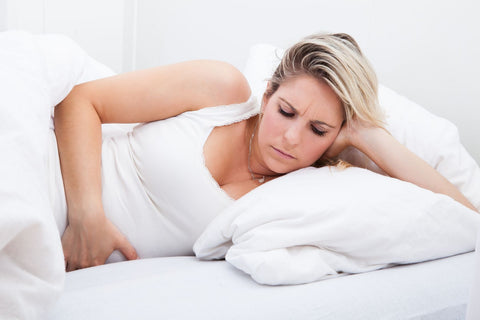
Hormonal Fluctuations
Hormones play a huge role in the health of your skin, which is why teenagers typically experience the worst that acne has to offer. On top of this sudden influx of hormones comes a desire to develop as an individual, fit in with a certain peer group, and take the first step in exploring crushes, dating, and sexuality.
The same hormones causing these feelings to develop and physical changes to take place are responsible for breakouts—both large and small. As breakouts begin to affect your outward appearance, they can pile on additional stress and hormone fluctuations, which allows the acne cycle to continue.
For those who suffer from the long term effects of acne, losing confidence and other negative emotional results are a common occurrence, according to the American Academy of Dermatology. In developmental years, this can seem like the end-all-be-all of your entire existence. Otherwise social and bubbly teenagers can find themselves to be more shy and introverted. Some may experience bullying over their acne, further exacerbating their confidence issues and pushing them deeper into emotional vulnerability and depression.
Quick fixes like face-covering hairstyles, makeup, and certain skin care products tend to continue to clog pores and cause breakouts to worsen. Fixes that can mitigate acne symptoms usually mean baring it all until the breakout clears— an idea that’s not too appealing to most middle and high school students.
Teenage-hood and Beyond
While quite strong for teenagers, the emotional impact of acne can weigh on any age. Low self-esteem can cause people to withdraw from their social life, allow ambitions to go un-pursued, and give up on romantic interests for fear of being seen as “ugly.” Energy levels drop, phones and messages go unanswered, and suddenly acne symptoms look a lot more like depression than you may realize.
When depression takes hold, acne only gets harder to combat, perpetuating its cycle. According to Nexus Youth and Family Solutions, depression can lead to poor hygiene habits, causing further build-up of sebum and bacteria that clog pores. Lethargy can make any effort to be social or pursue goals seem useless, making acne the center of your life, rather than an unfortunate but curable part of it. Depression can make acceptance of your condition impossible, adding to stress and hormone levels and further worsening breakouts. It may even come to a point where you feel doomed— cursed to walk the earth with acne forever.
If that sounds like you, stop right there. It’s time to seek help from a pro. Acne acceptance is possible and there are experts trained to help you see that there’s hope for you and for your skin.
Seeking Help
You are not silly or dramatic for finding this a tough issue to face, but facing it alone is a challenge no one should be expected to take on. Talk to a close friend, a parent, or a professional therapist about how acne has been impacting your life. Chances are, they’ll understand!
Start forming a support group that has your back against acne. Friends and family may even have tips and tricks for dealing with acne that can help alleviate your symptoms. There are thousands of people struggling with the same issues as you who have come around to better or even beat their conditions.
Once you have a support group in place, the other side of combating acne-related depression is rather simple: do what needs to be done to clear up your skin! Make an appointment with a dermatologist. Learn about your skin type and the root causes of your acne. Get some professional tips and tricks that help you say adios to breakouts. When you have a flare-up, realize it’s not the end of the world and continue doing the activities that make you happy. With correct treatment, you’ll notice a difference in the health of your skin and come to find that even larger breakouts are totally beatable, meaning you’ll be less stressed when they come around.
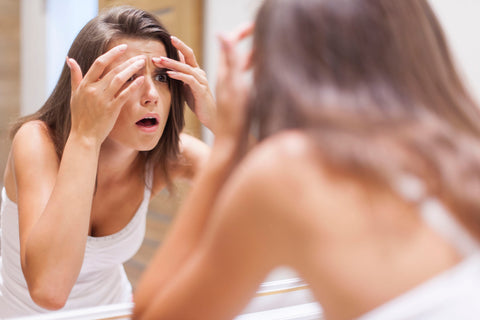
Lifestyle Changes
It’s important to note here that acne-related depression is a vicious cycle; when depression worsens, generally acne will follow suit. However, as acne symptoms desist and self-esteem improves, so will the symptoms of your depression, and not just because of your appearance.
When fighting acne, doctors will often recommend changing an acne-patient’s lifestyle and diet. They’re encouraged to eat healthier, cut down on sugars, and stay hydrated; stay active and exercise to open up their pores and allow their skin to breathe. They’re encouraged to work on acceptance, mindfulness, and keep a healthy and consistent sleep routine. One at a time these may seem like small efforts, but together they lead to a healthier life, fewer breakouts, and higher self-esteem overall.
Clearer skin in as little as two weeks.
This 3-step routine combines the most effective (clinically-proven) acne fighting ingredients with powerful plant intelligence to leave your skin nourished, refreshed, and clear.
Try Some
While acne may not be a direct cause of depression, low self-worth, constantly fluctuating hormone levels, and a sense of helplessness are all symptoms noted by those who suffer from depression, as well as those who suffer from chronic acne. The first step in either case is to seek the advice of a professional. Keep in mind that you are not your acne. Stay healthy, stay positive, and find the treatment that works for you. When you stay active in your fight against depression and acne, things will get better before you know it.

Abby Vinas
Abby Vinas has long been an active member of the holistic health community, advocating in favor of its benefits to both our physical and emotional well-being. Her commitment to leading a healthy lifestyle has made her an authority on self-care practices. Abby is passionate about fitness, nutrition, and proper skincare, and is also an avid lover of avocado toast and dog-petting.
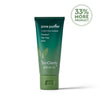
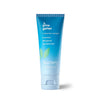
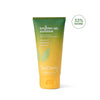









I’ve been struggling with horrible adult acne due to high stress for almost a year now and had not found anything that helps until now. I wash my face at night then use the toner and put Dermalmd blemish serum on and leave it on overnight. I’ve been using the mask, toner, face cream, and this acne treatment serum for over a week now and have noticed an improvement.